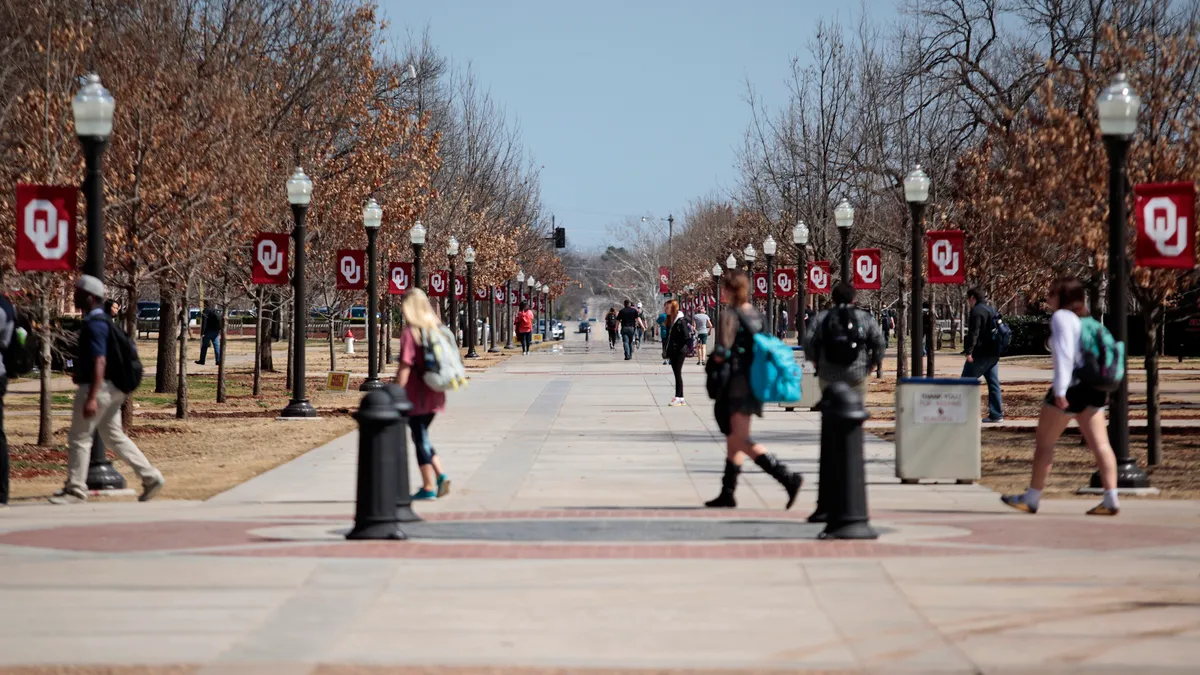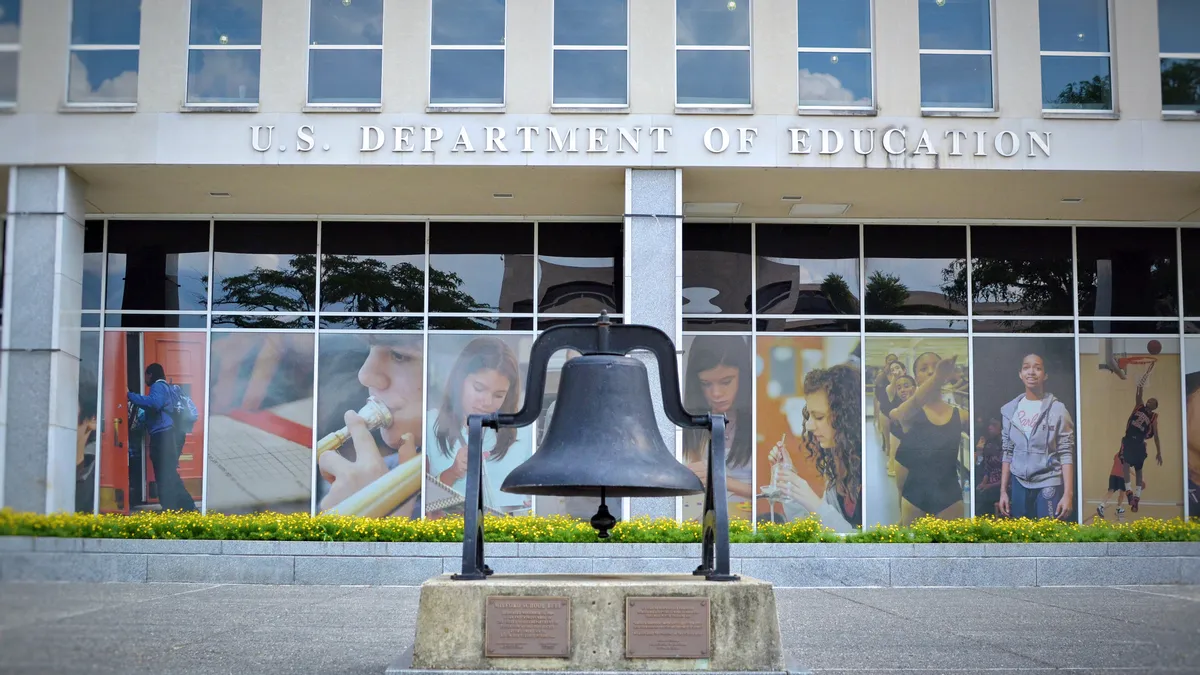Dive Brief:
- Undergraduate credential earners fell by 1.6% in the 2021-2022 academic year, a loss of 58,800 students, according to a new report from the National Student Clearinghouse Research Center. That's the lowest level seen in four years and the first time the share of credential earners has declined in a decade.
- Most of the drop stemmed from an unprecedented loss of first-time graduates, according to the clearinghouse. The drop of 1.9%, about 50,700 students, represented the largest single-year decline since the clearinghouse began collecting the data in 2012.
- Older first-time graduates also saw more dramatic credentials decreases than traditional students. The share of those 25 and older earning a credential for the first time fell by 4.1%, or 30,600 people, while the number of those 24 years old and younger only decreased by 1%, or 19,100 people, according to the report.
Dive Insight:
Previous research found an increasing number of college students dropped out during the COVID-19 pandemic. Now, the ripple effect has caught up with graduation rates.
“The pandemic’s impact on higher education has gone beyond the declining numbers of current students and is now showing up as a drop in the annual number of new graduates as well,” Doug Shapiro, executive director of the clearinghouse's Research Center, said in a statement. “This is a setback to those seeking higher postsecondary attainment rates, leaving the nation and many states falling further behind on goals for a highly educated workforce.”
Bachelor’s degrees earned by first-time graduates fell for the first time in a decade, dropping by 2.4%, or 36,000 students, according to the report. And associate degree completions dropped even more sharply, by 7.6% or 56,800.
Certificate graduates, however, increased. The pandemic invigorated the nondegree space, and there were 42,200 more undergraduate students who earned certificates in 2021, a 9% increase over the year prior.
Graduates with a prior credential decreased less dramatically than first-time graduates, dropping by 0.8% or 8,100 students. The loss came from a 2.5% decline in associate-degree holders earning a bachelor's degree, equal to 11,600 students.














